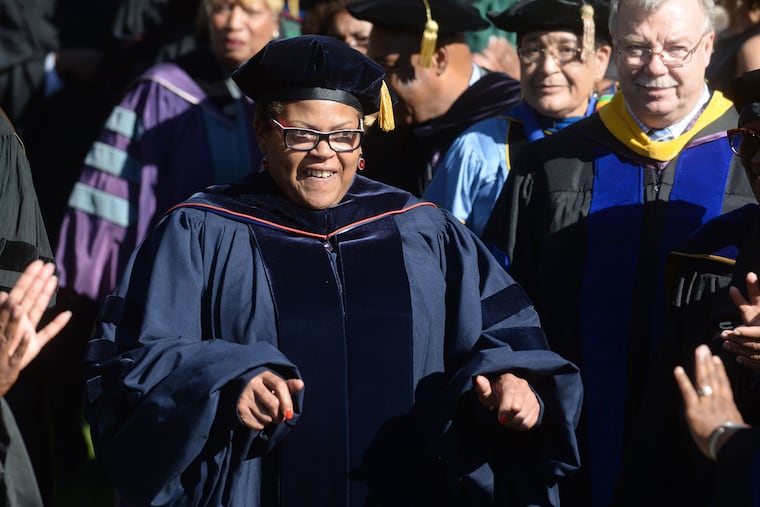Lincoln University board votes against renewing president Brenda Allen
After more than three hours of private deliberation, the Lincoln University board of trustees on Friday voted narrowly against retaining president Brenda A. Allen, despite a campaign that drew much support from faculty, alumni, and students to keep her.

After more than three hours of private deliberation, the Lincoln University board of trustees on Friday voted narrowly against retaining president Brenda A. Allen, despite a campaign that drew much support from faculty, alumni, and students to keep her.
No explanation was given for the board’s decision, which was made in executive session while more than 250 people waited during a Zoom meeting Friday night. Upon returning from the private session, board president Theresa Braswell said the vote had been 52% against negotiating a new contract with Allen, and 48% in favor. A board secretary had said earlier in the meeting that 21 of 23 trustees were present.
A board member then made a motion to move forward with identifying and selecting an interim president. That motion carried 14-7; one member who voted “no in protest” objected to the lack of discussion.
The meeting adjourned after the 14-7 vote and there was no opportunity to question board members over their decision. Furthermore, Braswell has not respond to requests for comment this week.
Before the vote, more than 14,000 people signed an online petition backing the renewal of Allen, whose contract ran out June 30, three years after she took over the historically Black university in Chester County.
Supporters say she has improved student retention and alumni giving, among other areas, and argued there was no reason she should not remain president.
Faculty and staff members said this week that the uncertainty surrounding Allen’s position had come as a shock, and said they learned of the issue only recently through alumni on Facebook.
Lincoln has lacked consistent leadership in recent years. Allen had succeeded an interim president tapped to replace Robert Jennings, who resigned in 2014 while facing backlash for comments about sexual assault.
Supporters of Allen — a 1981 Lincoln graduate who previously served as provost at Winston-Salem State University — said she has been an engaged leader and has backing from a wide variety of groups in the Lincoln community.
“The love that Dr. Allen has for the students, staff, faculty and alumni of Lincoln University has been proven time and time again,” Alisa Davis, a 2009 Lincoln graduate and president of the Philadelphia alumni chapter, said at the start of Friday’s meeting, when Braswell announced that nine members of the public would be allowed to comment.
Davis and other alumni called on the board to unite behind Allen — and expressed worry about continuing a “revolving door” of leaders at the state-related university, particularly during a pandemic.
“We’ll survive this challenge with the right leadership,” said Ray Jeter, a 1979 Lincoln graduate, who credited Allen with bolstering the school’s reputation in her three years and ushering it through reaccreditation. “A house divided against itself cannot stand.”